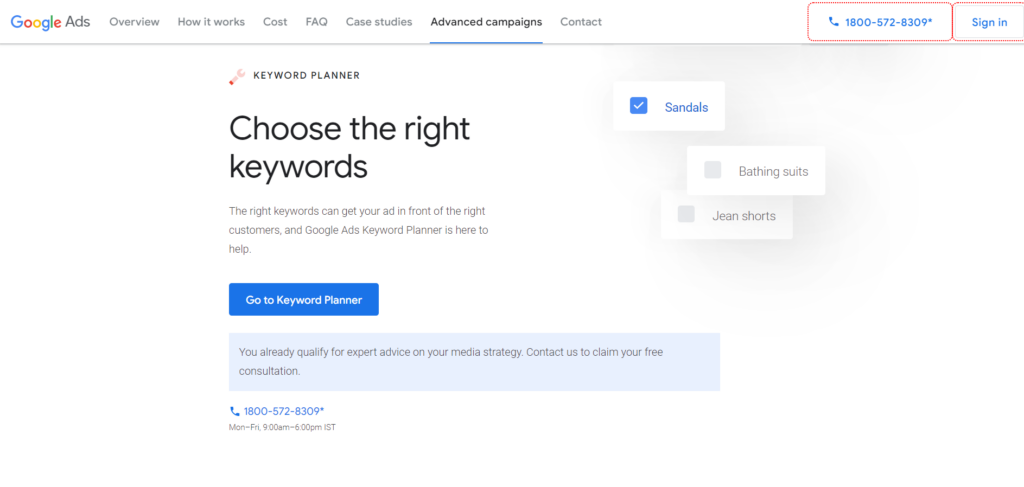
Key Takeaways
- E-commerce keyword research refers to the process of finding and selecting specific words or phrases that people often type into search engines (like Google) when they're looking to buy products online.
- eCommerce keyword research, at the heart of the strategy, helps to understand the language of the target audience & optimizing content.
- Comprehensive keyword research drives targeted traffic by aligning with search intent, resulting in higher conversion rates and better ROI.
- Thorough research helps businesses gain a competitive edge by identifying gaps and leveraging long-tail keywords that competitors might overlook.
- Keyword research informs long-term planning, aiding decision-making, content creation, and marketing strategies by tracking evolving customer behavior and trends.
In the vast and competitive world of eCommerce, achieving online prosperity is no easy feat.
To stand out from the crowd and attract the right customers, a robust search engine optimization (SEO) strategy is vital.
At the heart of this strategy lies a game-changing element: eCommerce keyword research.
By uncovering the language of your target audience and strategically optimizing your content, you can boost visibility, increase conversions, and drive revenue.
In this article, we will explore the importance of eCommerce keyword research and provide a step-by-step guide on how to conduct effective research.
Additionally, we will discuss some strategies and tools that can assist in the process.
Get ready to unlock the gateway to eCommerce triumph through the power of keyword research!
Meaning: eCommerce keyword research
E-commerce keyword research refers to the process of finding and selecting specific words or phrases that people often type into search engines (like Google) when they’re looking to buy products online.
These keywords help online businesses understand what potential customers are searching for, so they can optimize their websites and product listings to show up higher in search results.
This way, when someone searches for a product, the business’s website has a better chance of being seen and visited by potential buyers.
In simple terms, it’s like figuring out the exact words people use when they’re shopping online, so businesses can make sure their online shops show up when those words are searched for.
Why eCommerce Keyword Research is important?

1. Enhances SEO Performance
eCommerce keyword research plays a crucial role in enhancing the performance of a website’s search engine optimization (SEO).
By identifying the search terms and phrases that potential customers use when looking for products online, businesses can optimize their product descriptions, titles, and meta tags with relevant keywords.
This optimization helps search engines understand the relevance of the website’s content to specific queries, ultimately leading to improved search engine rankings.
Higher rankings, in turn, increase visibility in search results, drive organic traffic to the eCommerce site, and ultimately result in more conversions and sales.
2. Drives targeted traffic
Understanding the search intent behind specific keywords is key to driving targeted traffic to eCommerce websites.
Through comprehensive keyword research, businesses gain insights into the phrases and terms that potential customers use when actively searching for products or services they offer.
By strategically targeting these keywords and incorporating them into their website content, businesses can align their offerings and optimize their product pages.
As a result, they can attract visitors who are more likely to convert into customers, as their search intent aligns with the products or services being offered.
By driving targeted traffic, eCommerce businesses can increase their conversion rates and maximize their return on investment (ROI).
3. Provides a competitive advantage
Thorough eCommerce keyword research allows businesses to gain a competitive advantage by understanding their competitors’ strategies.
By analyzing which keywords their competitors are targeting, businesses can identify gaps and opportunities in the market.
This analysis provides valuable insights into the keywords that are driving their competitors’ success and allows businesses to optimize and differentiate their own offerings.
By leveraging long-tail keywords and niche-specific terms that may be overlooked by competitors, eCommerce businesses can tap into less competitive markets and attract a specific audience.
This targeted approach can help them stand out in a crowded marketplace and capture a unique segment of customers, leading to increased visibility, brand recognition, and ultimately, business growth.
4. Long-term strategic planning
eCommerce keyword research is not just about immediate results; it also aids in long-term strategic planning.
By monitoring and analyzing keyword trends over time, businesses can identify shifts in customer behavior, emerging market trends, and changing search patterns.
This valuable data can inform decision-making processes, product development, content creation, and marketing strategies.
By staying updated on evolving keyword trends, businesses can adapt their eCommerce strategies to remain relevant, meet customer needs, and stay ahead of the competition.
5. Expanding into new markets and niches
Effective eCommerce keyword research can open doors to new markets and niches.
By identifying untapped keywords, long-tail variations, and niche-specific terms, businesses can explore opportunities beyond their current target audience.
This research allows them to expand their product offerings, tailor their content to specific customer segments, and reach a wider audience.
By strategically optimizing their website and marketing efforts for these new markets, eCommerce businesses can unlock growth potential and gain a foothold in previously untapped markets.
How to do keyword research

1. Define your eCommerce goals
Before diving into keyword research, it’s crucial to clearly define your eCommerce goals.
Determine whether you want to drive sales, increase brand awareness, expand into new markets, or achieve other specific objectives.
Understanding your goals will help you choose the right keywords through eCommerce keyword research that align with your overall business strategy.
For example, if your goal is to increase brand awareness, you might focus on keywords that target a wider audience, whereas if you aim to drive sales, you would prioritize transactional keywords that lead to conversions.
2. Brainstorm relevant topics
To kickstart your eCommerce keyword research process, brainstorm a list of broad topics that are relevant to your eCommerce business.
Consider the products or services you offer, industry trends, customer pain points, and frequently asked questions.
This brainstorming session will serve as a foundation for further eCommerce keyword exploration.
Think about the different aspects of your business and the topics that resonate with your target audience.
3. Research seed keywords
Begin your eCommerce keyword research by selecting a few seed keywords related to the topics identified in the previous step, including “eCommerce keyword research.”
Enter these seed keywords into a reliable keyword research tool to explore their search volume, competition level, and relevance.
This analysis will provide insights into the performance and potential of these keywords.
Look for variations, long-tail keywords, and related terms that are closely associated with your seed keywords, including variations like “eCommerce keyword strategy” or “eCommerce keyword optimization.”
These additional keywords will expand your eCommerce keyword list and offer a more comprehensive perspective.
4. Analyze competitor keywords
Take a closer look at the keywords your competitors are targeting in their eCommerce strategies, including their website content, meta tags, and product descriptions.
Analyze their use of “eCommerce keyword research” and other related terms to gain insights into their keyword strategies.
This analysis can reveal valuable insights into their eCommerce keyword tactics and uncover opportunities for your own eCommerce business to differentiate itself.
Tools like SEMrush or Ahrefs can be helpful in gathering competitor data and understanding their eCommerce keyword performance.
By understanding what keywords your competitors are focusing on, including “eCommerce keyword research,” you can refine your own eCommerce keyword research and develop a unique approach that sets you apart.
5. Monitor and adapt your eCommerce keyword research strategy
Keyword research is an ongoing process for eCommerce success.
It’s important to monitor the performance of your chosen keywords, including “eCommerce keyword research,” and adapt your strategy accordingly.
Keep an eye on search trends, customer behavior, and industry changes.
Regularly evaluate your keyword performance and make adjustments as needed.
Stay up to date with the latest tools and techniques in eCommerce keyword research to ensure your strategy remains effective and aligned with your business goals.
6. Leverage customer insights for eCommerce keyword research
While conducting keyword research for your eCommerce business, don’t forget to tap into customer insights.
Take advantage of customer feedback, reviews, and social media interactions to identify common language patterns and phrases used by your target audience.
Understanding how your customers describe your products or services can provide valuable keyword ideas, including “eCommerce keyword research,” .
It also help you tailor your content to their needs and preferences.
Strategies for eCommerce keyword research

1. Long-tail keywords
Harness the power of long-tail keywords in your eCommerce keyword research.
These specific phrases target a niche audience, allowing you to attract more qualified leads.
Although long-tail keywords may have lower search volume, they often yield higher conversion rates.
Incorporate these targeted keywords into your product descriptions, blog content, and other relevant sections of your website.
To increase visibility and capture the attention of potential customers who are actively searching for what you offer.
2. Location-based keywords
If your eCommerce business operates in specific regions or targets local customers, don’t overlook the importance of location-based keywords.
Include geographical terms in your keyword research to optimize your website content for local search visibility.
Incorporating city or region-specific keywords into your product descriptions, landing pages, and metadata helps search engines understand your business’s relevance to a particular location, increasing your chances of appearing in localized search results.
By targeting customers in specific areas, you can tap into the power of local searches and drive more targeted traffic to your online store.
3. Seasonal keywords
Stay ahead of the game by identifying seasonal keywords that align with specific holidays, events, or seasonal trends.
Incorporating these keywords into your content, promotions, and product descriptions allows you to capitalize on the heightened interest and purchasing activity during peak periods.
By tailoring your offerings and messaging to match seasonal trends, you can boost your eCommerce sales and attract customers who are actively seeking products or services related to the specific season or occasion.
Remember to conduct seasonal keyword research regularly to stay relevant and keep up with evolving consumer demands.
4. Competitor analysis
To gain a competitive edge in the eCommerce landscape, it’s crucial to analyze your competitors’ keyword strategies.
Identify which keywords are driving traffic and conversions for your competitors and assess their search rankings.
This analysis can provide valuable insights into keyword opportunities you may have overlooked or uncover new keyword variations to target.
By understanding the keywords that your competitors are successfully targeting, you can refine your own keyword research and enhance your SEO strategies to outperform them in search results.
5. User intent
When conducting eCommerce keyword research, it’s essential to consider user intent.
Understand the intentions and needs of your target audience when they search for products or services online.
Are they looking for information, making a purchase, or seeking solutions to a problem?
By aligning your keyword strategy with user intent, you can create highly relevant and engaging content that satisfies their needs.
This approach not only improves your chances of ranking higher in search results but also enhances user experience, leading to higher conversion rates and customer satisfaction
Tools for eCommerce keyword research
1. Google Keyword Planner

- Google Keyword Planner is a free tool that provides insights into keyword search volume and competition.
- It offers suggestions for related keywords and allows you to filter results based on location, language, and date range.
2. SEMrush

- SEMrush is a comprehensive SEO tool that offers robust keyword research capabilities.
- It provides detailed keyword data, including search volume, competition level, and keyword difficulty.
- SEMrush also offers competitor analysis and content optimization features to enhance your eCommerce keyword strategy.
3. Ahrefs

- Ahrefs is another popular SEO tool that can assist in eCommerce keyword research.
- It offers an extensive keyword database, search volume data, and keyword difficulty analysis.
- Ahrefs provides insights into competitors’ organic and paid keywords, enabling you to uncover valuable keyword opportunities.
4. Moz keyword explorer

- Moz Keyword Explorer is a user-friendly tool that provides in-depth keyword analysis.
- It offers metrics like search volume, keyword difficulty, and organic CTR (Click-Through Rate) potential.
- Moz Keyword Explorer also provides related keyword suggestions and SERP (Search Engine Results Page) analysis.
Conclusion
Congratulations on unlocking the power of eCommerce keyword research!
By understanding your audience’s language and optimizing your online presence, you’re poised for success.
Watch as your visibility skyrockets, search rankings soar, and your business outshines the competition.
Stay tuned to evolving trends and customer preferences, and let your keywords guide you on an exciting journey to eCommerce triumph.
Get ready to captivate, convert, and conquer the digital marketplace like never before!
